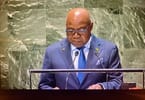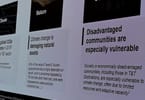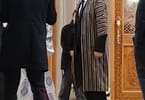On World Press Freedom Day 2015, the Media Institute of Southern Africa (MISA) joins free expression advocates across the world in promoting and recognizing the importance of press freedom.
On this day each year, we launch “So This Is Democracy? – State of media freedom in Southern Africa,” based on our daily monitoring and other research and analysis gathered in the 11 Southern Africa Development Community (SADC) countries where MISA operates.
This year’s publication reflects on the state of media freedom in southern Africa in 2014, and is characterised by the theme ‘photojournalists under fire.’ Oppressive governments understand the power of images and in the year 2014, photojournalists and other media workers capturing photos and video were prime targets for attacks by authorities trying to control the media. Such attacks included assaults, detention, confiscating equipment, deleting photos and, in the most extreme case, the fatal shooting of a reporter.
On 13 January 2014, police shot dead freelance journalist, Michael Tsele, in the north west of South Africa, where he was covering a local protest against the community’s lack of water and sanitation services. While the official investigation concluded Tshele was likely caught in the crossfire between protestors and police, community members say police shot Tshele because he was taking photographs.
The year 2014 was a concerning year for media freedom the world over. As wars raged across the globe, governments lead the fight for information, seeking to control media messages through violence, intimidation, restrictive legislation and unfair arrests and sentences.
MISA is outraged over the continued obstruction of media freedom and free expression in the SADC region, demonstrated by restrictive legislation, misuse of legislation like criminal defamation laws, unwillingness to pass positive media policies and legislation, and violations perpetrated against media workers and activists.
The sentencing of the editor of independent Swazi magazine The Nation, Bheki Makhubu and human rights lawyer Thulani Maseko to two years in prison, without the option of a fine, on 25 July 2014 in Mbabane, Swaziland sent shockwaves around the world.
The harsh sentence followed Makhubu’s and Maseko’s conviction on contempt of court charges on 17 July 2014, for separate news articles each wrote criticising the kingdom’s chief justice. The ruling is unreasonably severe and is clearly intended to send a message to those who might contemplate future criticism of Swaziland’s judiciary. MISA condemns to the highest degree this unreasonable sentence, which serves to instil self-censorship among Swazi journalists, who will fear the consequences of speaking out against the oppressive government.
MISA was greatly encouraged by the December 2014 ruling by the African Court on Human and Peoples’ Rights (ACHPR), in the case of Konaté v Burkina Faso, which found that prison sentences as penalties for defamation violate the ACHPR and the International Covenant on Civil and Political Rights. The ACHPR ruled criminal defamation laws cannot include custodial sentences or sanctions that are disproportionate, such as excessive fines.
This was a landmark ruling that will have far reaching impact on media freedom in the region as the judgment is binding on African Union member States. We note with disappointment, however, the continued use of archaic laws criminalising expression and impeding journalists from doing their jobs without obstruction or fear of being threatened or arrested. And in 2015, we are calling on the government of Angola to respect this ruling and to uphold the right to free expression in the trial of Angolan journalist and human rights activist Rafael Marques De Morais.
De Morais, is facing 15 libel charges and the threat of nine years in jail and libel fees of £800,000 (R14 333 246.69) if found guilty. The charges arise from a book published in 2012, Blood Diamonds: Corruption and torture in Angola, which contains details of more than 100 killings and torture cases against civilians and small-scale miners at Angolan diamond mining fields.
So This Is Democracy? 2014 also notes the victories for media freedom in 2014, and that included significant progress made by access to information advocacy in the region. Malawi saw a positive start to the year in January 2014 when the cabinet adopted the Access to Information (ATI) Policy, which provides a framework for enacting and implementing the ATI Bill. On Wednesday 26 November 2014, we welcomed the Mozambican Parliament’s unanimous passing of an access to information (ATI) Bill.
These victories, however, highlight the frustrating stagnation in processes to pass access to information legislation; to amend ineffective laws; or to implement existing legislation in other countries. We call on the governments of Botswana, Lesotho, Swaziland and Zambia to expedite the adoption of access to information laws in their countries.
The 2015 global theme for World Press Freedom Day is “Let Journalism Thrive! Towards Better Reporting, Gender Equality, and Safety in the Digital Age.” MISA hopes the theme will initiate dialogue on online safety that will continue and will add to regional and global efforts to ensure safety online.
In 2014, as in the year before it, more and more media workers and citizen journalists turned to online platforms to express themselves. With the increasing use of new media and online platforms to create and share information, we are also seeing increased insecurity from governments and subsequent attempts to curtail freedom of expression in the online arena.
MISA condemns efforts to inhibit freedom of expression and access to information through ICT platforms, including the misuse of legislation such as national security laws, to impose restrictions on the use of online platforms. MISA will continue to work closely with other concerned organisations to campaign for freedom of expression online and to participate in the drafting of an African Declaration on Internet Rights to ensure respect for human rights in the online arena.
We remain committed to achieving media freedom and freedom of expression in southern Africa and will continue to bring violations – and victories – such as those documented in So This Is Democracy? 2014, to light and to fight for perpetrators to be held accountable.
WHAT TO TAKE AWAY FROM THIS ARTICLE:
- And in 2015, we are calling on the government of Angola to respect this ruling and to uphold the right to free expression in the trial of Angolan journalist and human rights activist Rafael Marques De Morais.
- The sentencing of the editor of independent Swazi magazine The Nation, Bheki Makhubu and human rights lawyer Thulani Maseko to two years in prison, without the option of a fine, on 25 July 2014 in Mbabane, Swaziland sent shockwaves around the world.
- MISA is outraged over the continued obstruction of media freedom and free expression in the SADC region, demonstrated by restrictive legislation, misuse of legislation like criminal defamation laws, unwillingness to pass positive media policies and legislation, and violations perpetrated against media workers and activists.






















